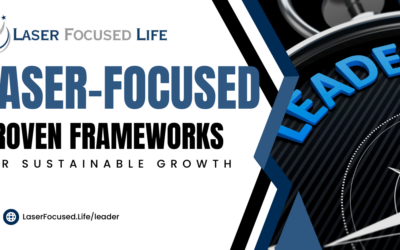Most of us think of a leader as someone with a great deal of education and experience in a certain area. While knowledge and experience are important qualities, one’s ability to communicate and work well with others is just as important to being an effective leader.
Having a high degree of emotional intelligence (E.Q.) allows you to be able to inspire and motivate others to co-operate with you to accomplish a shared objective and vision. There are several ways that you can strengthen your interpersonal skills.
Try these methods to dramatically raise your E.Q. and accomplish more together:
- Increase your self-awareness. Self-development is the foundation of excellence. Before you can lead and inspire others, you must first understand your own motivations and behavior.
- Develop your vision by learning to listen to your inner values and dreams. Trust yourself. Try not to compromise your values to achieve a goal or for other temporary gains.
- Embrace passion by learning to be motivated by your internal compass rather than external forces and situations.
- Keep your energy fully recharged, so you can give your best effort. You can stay energized by taking the time to learn what activities re-energize you and which ones drain your energy.
- Respect yourself. Know the limitations of your body, mind, and spirit and strive for balance between your responsibilities in all areas of your life.
- Become aware of your flaws and limitations. Seek ways to improve yourself and be open to change.
- Strengthen your discipline and self-management. Learning to be responsible for your behavior, attitudes, and actions can raise your performance level as well as help you to build trust and authority with others.
- Seek the input of others. Ask how you can help them, or what you need to do differently to communicate more effectively and manage them better.
- Hold yourself accountable for your actions and performance.
- Don’t be afraid to delegate responsibilities and tasks. Be confident enough in yourself to surround yourself with talented, qualified people.
- Develop your social awareness. Be aware of your own attitudes and the power you have to motivate others.
- Show genuine concern for others and learn how to actively listen. Doing so will create lasting bonds and a strong team that will work with you rather than against you.
- Give others a reason to support you and your vision. Let others know when they have done a good job and look for ways to openly recognize and reward excellence.
- Help others to buy into your vision by making them stakeholders in the attainment of your goals. Seek their advice when setting goals and making plans on how you’ll achieve them.
- Help others to increase their abilities and fully utilize their talents by providing opportunities for training, scholarship, and self-development.
- Emphasize greater relationship management. Learn how to bring out the best in yourself and others. Utilize everyone’s best qualities and minimize their limitations with effective assignment of tasks and delegation of responsibilities.
Regardless of your education or experience, you can achieve greater success by learning how to use your people skills to fully harness the talents and energy of others. These strategies will allow you to increase your E.Q and inspire others to fully enlist in your cause of their own free will.





0 Comments